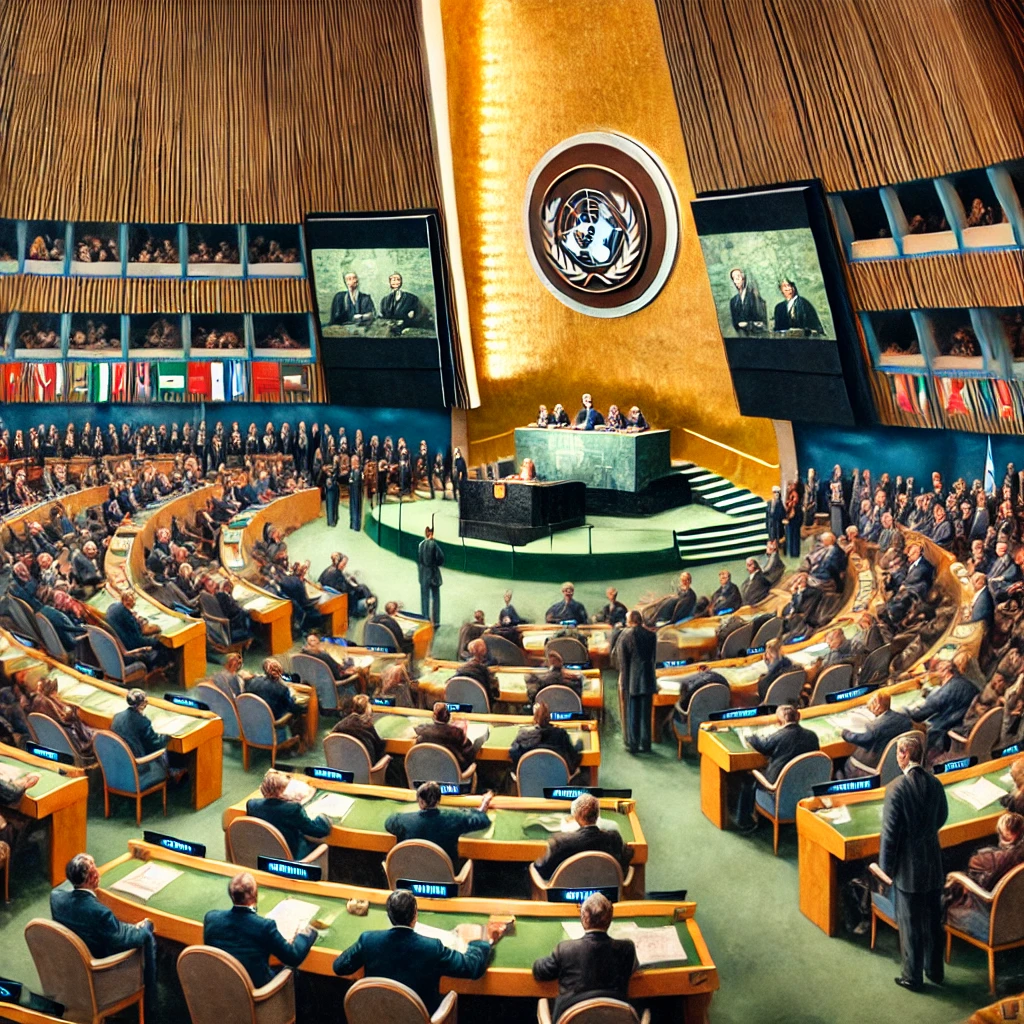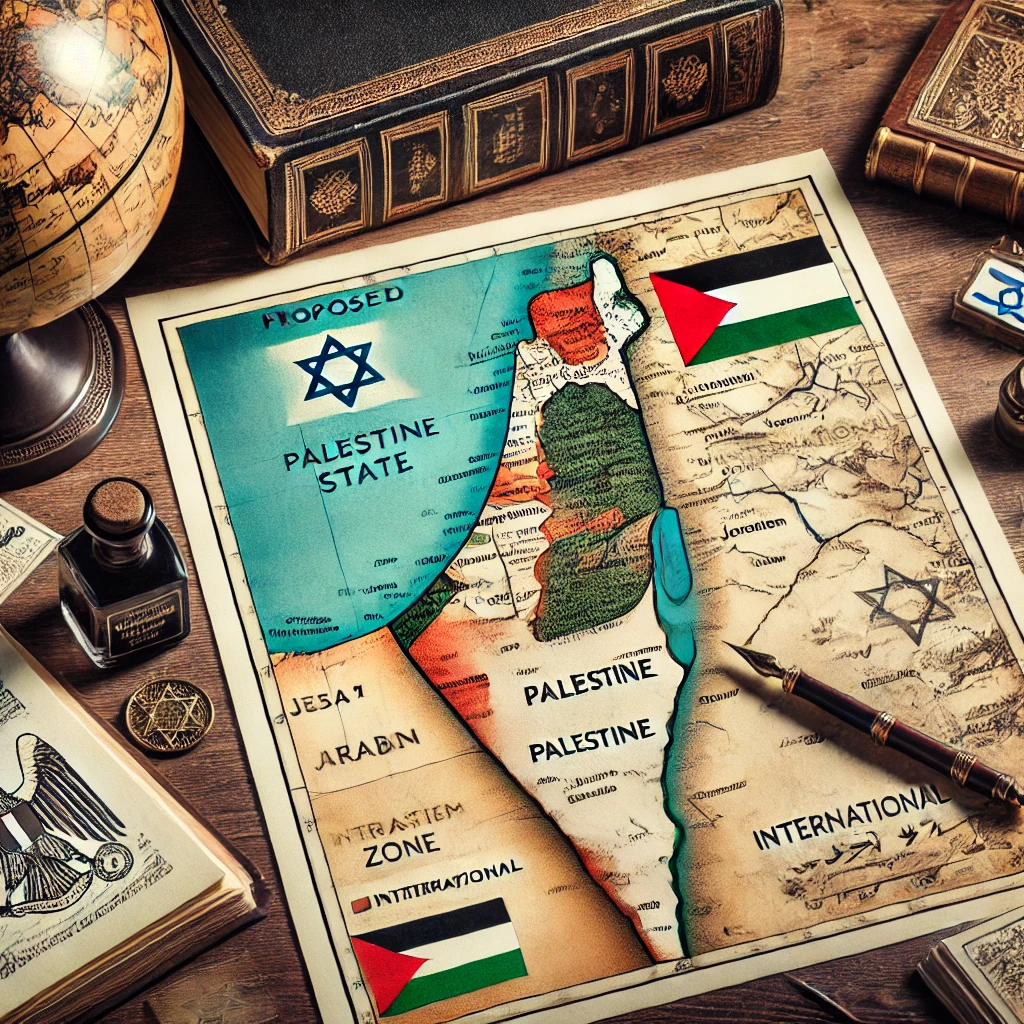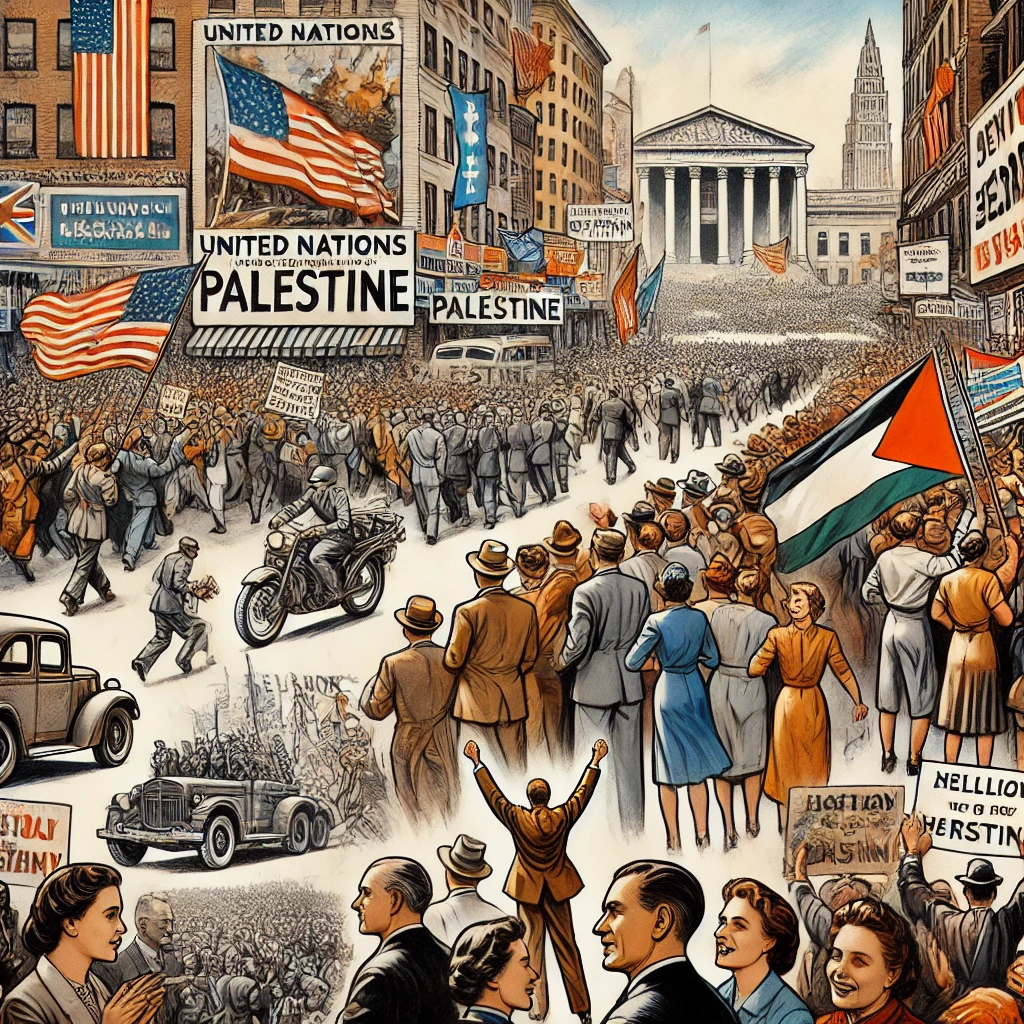On November 29, 1947, the United Nations General Assembly voted on Resolution 181, recommending the partition of Palestine into separate Jewish and Arab states, with Jerusalem under international administration. This pivotal decision marked a turning point in the history of the Middle East, shaping the contours of the region’s geopolitics and sowing seeds of conflict and hope that persist to this day.

The Background to Partition
The recommendation to partition Palestine was deeply rooted in decades of complex history. By the early 20th century, the region, under British control following the fall of the Ottoman Empire, had become the focus of competing nationalist aspirations. Jewish communities, driven by the Zionist movement, sought a homeland in Palestine, a land of deep historical and religious significance to Jews, while Arab Palestinians, who had lived there for centuries, opposed the influx of Jewish immigrants.
The Holocaust during World War II added urgency to the Zionist cause, with survivors seeking refuge from persecution. However, escalating tensions between Jewish and Arab communities led to violence, pushing the British to refer the issue to the newly established United Nations. The UN’s Special Committee on Palestine proposed partitioning the land into two states, aiming to address both communities’ aspirations.

The Decision and Its Immediate Aftermath
The UN General Assembly approved Resolution 181 by a vote of 33 to 13, with 10 abstentions. The plan allocated roughly 55% of Palestine to a Jewish state and 45% to an Arab state, despite the Jewish population being a minority at the time. Jerusalem, as a city of global religious significance, was to be governed under an international regime.
The resolution was celebrated by the Jewish community, viewing it as a step toward establishing the State of Israel. However, the Arab world strongly opposed the partition, rejecting the legitimacy of dividing the land. The decision triggered immediate violence between Jewish and Arab factions, and the withdrawal of British forces in 1948 left a power vacuum that erupted into the Arab-Israeli War.
Legacy and Lasting Impact

The partition of Palestine remains one of the most contentious issues in modern history. Israel declared independence in 1948, leading to the first Arab-Israeli War and the displacement of hundreds of thousands of Palestinians, an event Palestinians refer to as the Nakba, or “catastrophe.” While Israel became a recognized state, the proposed Arab state never materialized, leaving the Palestinian people stateless and sparking decades of conflict.
The legacy of the partition continues to shape the region. The Israeli-Palestinian conflict remains unresolved, with disputes over borders, refugees, and the status of Jerusalem central to peace negotiations. The international community is still divided, with various proposals for a two-state solution echoing the UN’s original vision.
The decision of November 29, 1947, underscores the challenges of reconciling competing national identities in a shared land. It serves as a stark reminder of the complexities of state-building and the enduring quest for peace and justice in one of the world’s most volatile regions.
As we reflect on this day in history, the partition of Palestine reminds us of the power of international diplomacy and the profound consequences of decisions made on the global stage. While the challenges it introduced remain unresolved, the hope for coexistence and mutual recognition endures as a goal for future generations.
